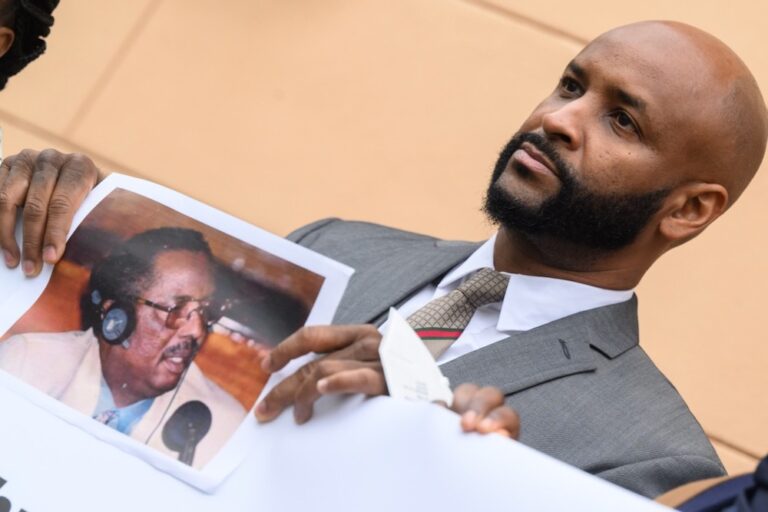(MISA/IFEX) – Those who thought Professor Kenneth Good’s case was resolved should brace themselves for a surprise. The drama has now shifted to Banjul, The Gambia, where the indefatigable political science lecturer has lodged a complaint with the African Human Rights and People’s Commission. Deputy Attorney General Abraham Keetshabe has confirmed to MISA that the […]
(MISA/IFEX) – Those who thought Professor Kenneth Good’s case was resolved should brace themselves for a surprise. The drama has now shifted to Banjul, The Gambia, where the indefatigable political science lecturer has lodged a complaint with the African Human Rights and People’s Commission.
Deputy Attorney General Abraham Keetshabe has confirmed to MISA that the Botswana government has been hauled before the commission by Good, who was deported from Botswana in 2005 for lecturing critically on national affairs.
“Some two weeks ago, I was in Banjul defending the Republic of Botswana in relation to a complaint that was lodged by Professor Good. He is basically challenging the presidential decision to declare him a prohibited immigrant. Our position is that he has no legitimate complaint,” said Keetshabe.
Keetshabe also said his legal team has raised a preliminary point arguing that Good’s case should be declared inadmissible. The government is waiting for a ruling on this preliminary point.
Although he did not travel to represent Good in Banjul, Dick Bayford, who is the instructing attorney in the matter, said he was aware that the case is before the African Commission. He said that they have instructed the lawyer Anton Katz and, due to cost considerations, could not travel with him to Banjul. He said Good’s complaint is motivated by the realisation that Botswana has certain obligations under the African Human Rights Charter and the International Convention on civil and political rights.
“Being a signatory to these treaties, Botswana is under obligation to incorporate, into national laws, aspects that would give effect to the tenor and spirit of these treaties. In instances where the national laws are found to be in disagreement with these international instruments, the state would have to cancel or repeal such laws.” In his view, Good’s argument is bound to succeed because Botswana has failed to fulfill its obligations by having in its laws the Immigration Act, a provision that gives the president the right to expel an individual from Botswana without affording that person the right to challenge the decision before any court of law. Bayford said he was hopeful that Good would win the case.
“Based on similar cases, the bulk of which we have relied upon, the trend is that the commission would find the Botswana government to be in breach. In a similar case, the commission found the Republic of Zambia to have been in breach.” Both Bayford and Keetshabe said the decision of the commission is not binding. “We know the decision would not be binding and, as such, the case is purely for political and moral persuasion.”
“The Botswana government is known as a compliant state and they would not want to be declared a rogue state,” Bayford said. Meanwhile, Bayford has confirmed that Good is now in Sweden as a visiting professor, though he still wants to return to Botswana. “He has lived here for a while and loves the country,” Bayford said.


